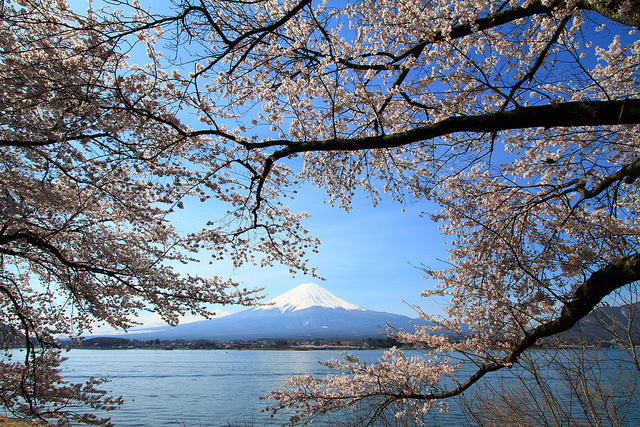Kaya Chiba was at CSU this past year as a visiting scholar, and also received her M.A. in TESL/TEFL at CSU. Even though she returned to Japan last week, before she left she was kind enough to answer some questions about her time here.

You are an English teacher at Toyo University in Japan, but currently at Colorado State University (CSU) as a visiting scholar, (where you also earned your M.A. in TESL/TEFL). Did you return to Japan after receiving your M.A. in TESL/TEFL and then return later to CSU? Had campus or the surrounding community changed much between your time here as a student and when you returned?
Well, actually, I had to go back to Japan for work before receiving my MA, so I finished my thesis in Tokyo. During that time, I came to CSU on and off to meet with my advisor, Dr. Flahive to ask for his advice, and every time I came to campus, I saw new buildings being built. Not just the campus, but also the town itself seems to be growing larger and larger. I am quite impressed!
Can you tell us a bit more about being a visiting scholar at CSU?
When CSU is in session, I audit classes with other graduate students with the permission of professors. I have my own research project, but learning in class is a great opportunity, because it expands my limits and understanding of the areas that I am particularly interested in. In addition, with longer experience as a teacher, I can digest materials better now by connecting theories and realities better. As the only Japanese native speaker in class, I sometimes offer insight about Japanese and Japanese culture. This makes me realize that speaking the language is one thing and knowing about it is another.
How would you describe your teaching style, your philosophy?
Many of my students in Japan learn English through formal instruction only, and the purpose of learning English for them is mainly to pass an entrance examination to college. They know English is a tool for communication and want to be able to use it, but many of them have to focus on mechanical aspects of English for the exams. So, what I strive to do in my college classes is to let them know they can actually use English to express themselves by writing and talking about themselves. And I also strive to provide them with opportunities to explore different ways to learn English so that they can find the most suitable ways for themselves. Studies suggest specific strategies to learn a foreign language efficiently, but because of different learning styles and individual differences, it is impossible to prescribe certain strategies as the best for my students. Learners themselves have to find what is good for them. What teachers can do, I believe, is suggest what tools are available for learners to use. Of course, I teach technical aspects about English, but I see myself as a supporter for my students’ life-long learning.
What special project are you working on right now?
I am currently interested in vocabulary acquisition. Many of my students are used to memorizing many words and phrases for tests, which are usually multiple-choice. So, their use of vocabulary seems to be rather inadequate for communication primarily due to the lack of pragmatic knowledge. Since I want my students to be autonomous learners, I am currently seeking to find better ways to teach vocabulary for practical purposes, as well as to provide tools that learners will find suitable and useful for autonomous-learning because it takes a lot of time and effort to be able to use a foreign language.
What do you miss most about Japan? What will you miss most about Colorado when you go back?
Thanks to the great environment here, I don’t miss much about Japan. If I have to pick one thing, that would be raw fish. On the other hand, I will miss a lot about CSU and Fort Collins, the people and nature. Everyone is very friendly and helpful. I work in Tokyo, which is very convenient and exciting, but too crowded. People in Tokyo are not unfriendly, but I will definitely miss the people in Fort Collins.
What have you learned about teaching and research while at CSU that you’ll be taking back with you?
Although I am fortunate to work in a career I love, I don’t have much time to reflect on my teaching in Tokyo. Here, learning in class and talking with graduate students and professors has offered me an invaluable opportunity to consider what I have been doing as a language teacher. I was able to decide on my next research focus and project to do and probably more importantly, I think I will return a more supportive teacher now after interacting every day exclusively in English. I relearned how to use English for communication.
What do you hope we have learned from you?
I am fortunate to have met great graduate students in the classes I’ve audited, and I have made some good friends, which I hadn’t expected before I came! It is difficult to say if there is something you have learned from me, but it is important for American TESL/TEFL students to know and see that there are also non-native English teachers who are as serious about teaching English as native English teachers. We may not have the same intuition for English as native English speakers, but we have a lot of insight into what difficulties and frustrations English learners can have, and we share an interest in how intriguing English language is.
Finally, I’d like to say how grateful I am to have been at CSU again, and I wish everyone good luck on your study and research!